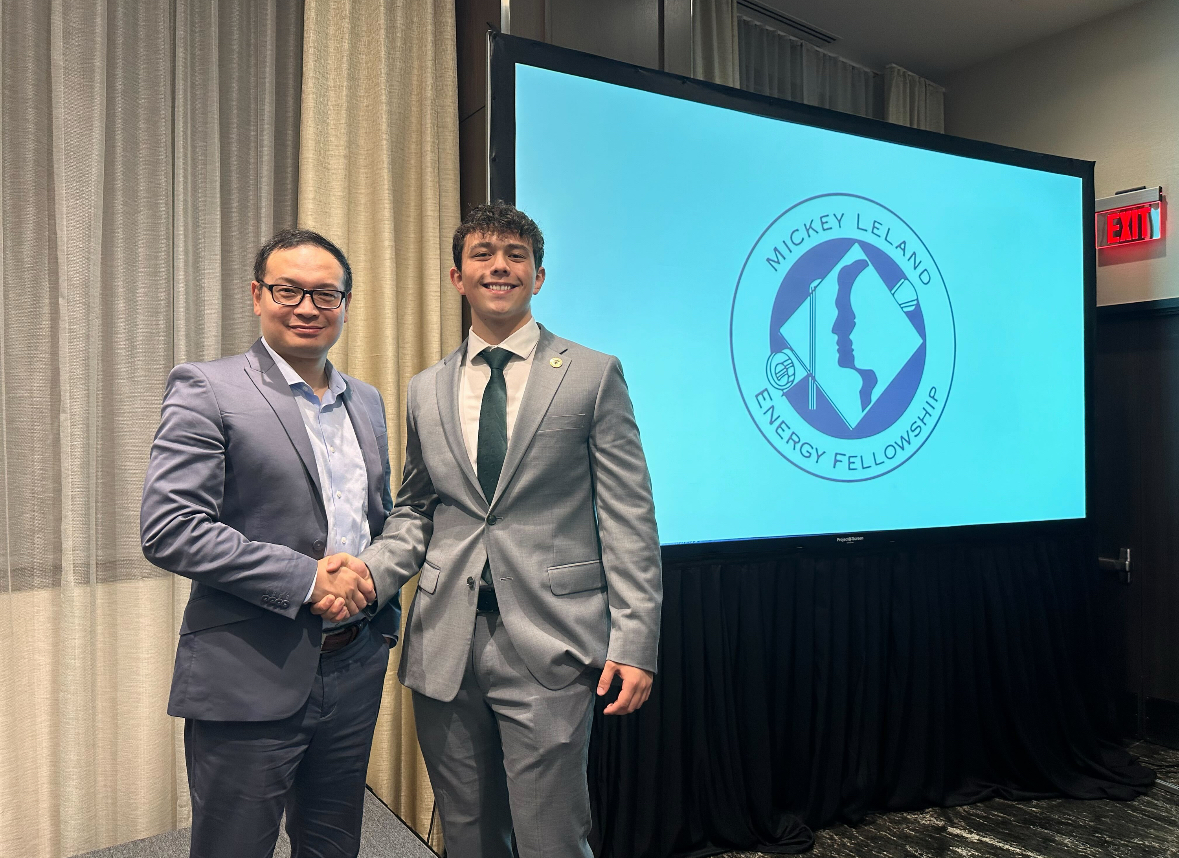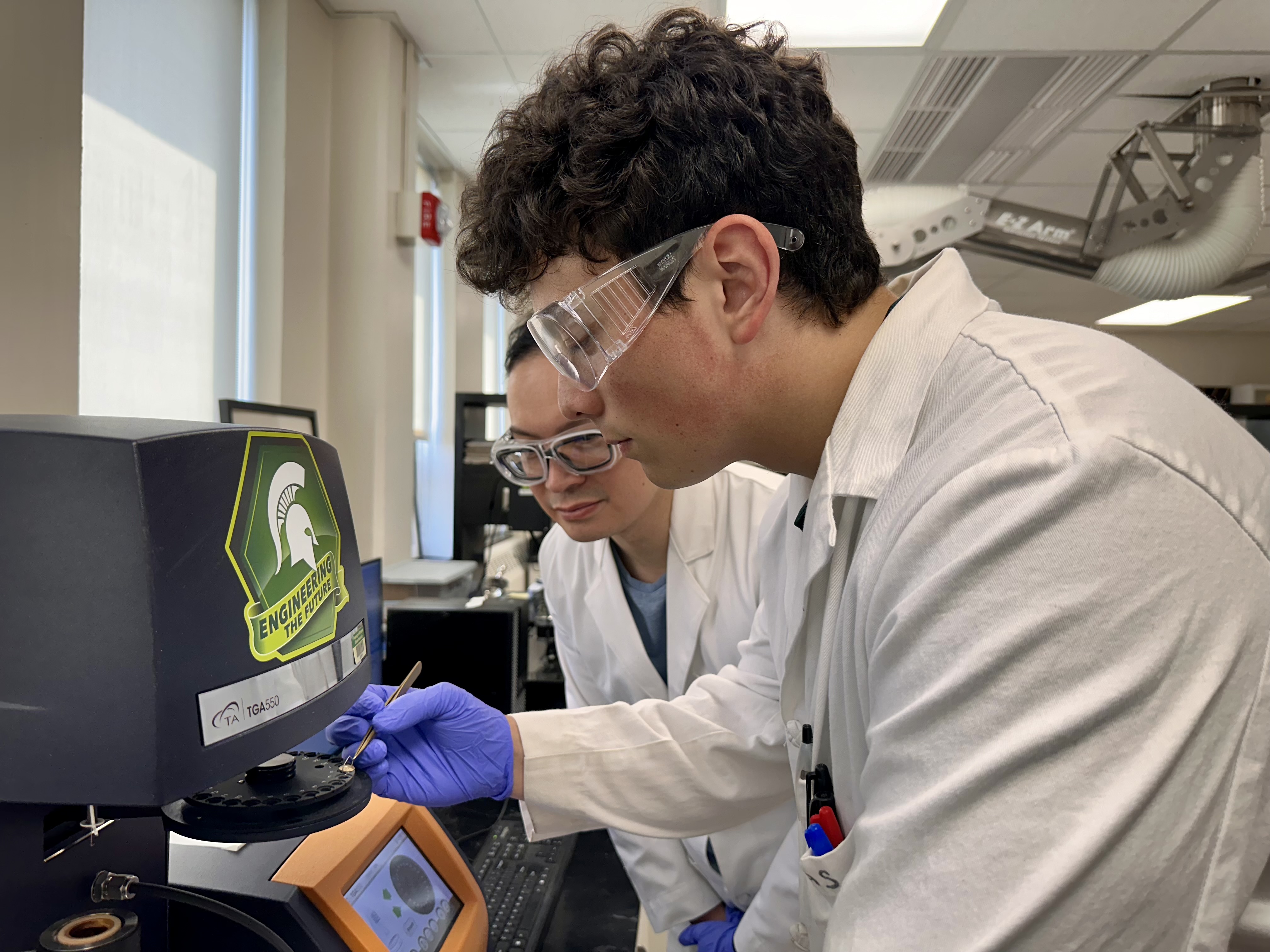Nathan Denning is a civil engineering student and research assistant in the College of Engineering.
Growing up in a military family, I was fortunate to live in and experience multiple places across the country, ranging from the suburbs of large cities to the island of Kodiak, Alaska, a community entirely powered by renewable energy. Spending time in such vastly different places opened my eyes to many of the world's environmental challenges due to urbanization. This initially sparked my motivation to pursue a career in creating a more resilient, and energy-efficient world through engineering.
Back in high school, one major opportunity at Michigan State made my college decision easy: the Professorial Assistantship program through MSU’s Honors College. I was simply amazed that I would have the opportunity to conduct research starting in my first semester of college with no prior experience. With this program, I was matched with Dr. Qingxu “Bill” Jin from the College of Engineering, and I have taken part in some of the most advanced concrete materials research in the nation for the past two years.
Concrete is the second most used resource in the world behind water, and it makes up approximately 8% of global CO2 production. To help mitigate this, Dr. Jin’s Resilient, Intelligent, Sustainable, and Energy-Efficient Materials Lab creates bendable concrete that is more durable and environmentally friendly than traditional concrete. I was astounded when I saw bendable concrete for the first time, and I was eager to explore its potential.
Over the last two years with the RISE group, I’ve had the opportunity to contribute to innovative projects and gain hands-on experience with laboratory work, as well as build presentation skills. For example, I earned a NASA fellowship through the Michigan Space Grant Consortium, where I helped create bendable MoonCrete and MarsCrete for future construction on the Moon and Mars. I performed two poster presentations on this project, with one at an MSGC conference, and the other through MSU’s Engineering Summer Undergraduate Research Experience Program.
These experiences prepared me well to take a major leap as a researcher this past summer: the Department of Energy’s Mickey Leland Energy Fellowship. I was incredibly excited about this opportunity, as I had wanted to be involved with the Department of Energy since high school, and the MLEF program is one of the most competitive STEM internships in the country.
With the MLEF program, I got the chance to conduct research at the National Energy Technology Laboratory in Pittsburgh, PA. With amazing mentorship and support at NETL, I helped develop a new and sustainable method for critical mineral extraction from common materials. I’m extremely hopeful about the future impact of my research project, especially given the importance of critical minerals to the industrial state of Michigan. I also had the privilege of presenting my work at the MLEF Technical Forum, where Dr. Jin came to support me in person.
In addition to the technical presentation at the end of the summer, I decided to take part in Oak Ridge Institute for Science and Education’s annual “Ignite Off” Competition. The competition posed a unique challenge for me: a five-minute, twenty-slide presentation, with only one take. After a lot of practice (and even more revising), I competed in the semi-final round, and eventually advanced to the finals. Over a hundred participants, including many Ph.D. students and postdocs, competed in Ignite Off this year representing a wide variety of federal agencies and national labs.Knowing this I was especially honored to be one of ten national finalists.
I’m incredibly proud of myself for my growth as a researcher over the past two years at MSU. I know my family, friends, and mentors are as well. I’m very grateful to them, as they’ve supported and guided me throughout this process. I’m also thankful for the opportunities that I’ve had at MSU to fuel mysuccess, as I don’t think I would be where I am today without it.
To anyone thinking about research at MSU, whether you’re a current or prospective student, I highly encourage you to try it out. Not only has my research experience at MSU brought me some exciting opportunities and potential career paths, but the hands-on learning from it has built my confidence, my presentation skills, and passion for engineering in ways I never would have anticipated.


